When you’re on the go, without electricity, or don't have access to one of the best coffee makers, making coffee becomes a perplexing task. Essentially though, if you’ve got access to great coffee beans, water, and some alternative pieces of equipment, you can achieve a lovely cup of coffee without your usual home comforts. Of course, heating up your water is an imperative step, so purchasing a portable gas stove, if you don’t have access to electricity, or a portable induction cooktop, if you do, is the first step.
We’ve spoken to four coffee experts who have shared their favorite ways to make coffee on the go, including top tips on how to achieve the best flavor while doing so. There’s ways to make coffee without a coffee maker, but there’s also three tried-and-tested ways that our experts recommend if you find yourself away from home, or faced with a power outage.
Do you need a coffee maker to make coffee?
Tim Medley, Coffee Quality Specialist and Q Grader at Taylors of Harrogate says, “The short answer is no, you don’t need a coffee maker to make coffee - and, in fact, you can make some of the best coffees with some of the simplest equipment available.”
“Electric coffee makers, such as espresso and bean to cup machines, tend to be most suited to espresso-based coffees. So, if you’re after a cappuccino or a latte then you’d likely use a machine for the espresso foundation. But it can be quite tricky to find a machine that will give you a really decent espresso and, even with the fanciest ones, you need some expertise to get the most out of them.” For espresso needs, check out our guide to the best espresso machines.
He adds, “It all comes down to how much you can control the brewing process; and the good news is that with some of the simplest equipment, you’ll still have a lot of control. To make a great filter style coffee, I’d go for a simple piece of equipment every time.”
3 power-free coffee-making methods
If you’re away from the usual kitchen commodities, and especially the use of any coffee maker, there are ways to make great-tasting coffee with just hot water and a small piece of on-the-go kit. Maybe you’re camping or traveling with an RV — that doesn’t mean you can’t enjoy a nice cup of joe. With the help of coffee experts, we’ve got three techniques you can use - the French press, the Aeropress, and Chemex. Here’s how.
1. French press
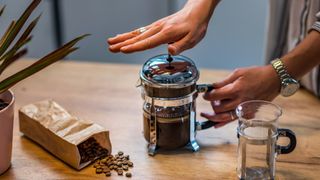
A French press, also known as a cafetiere, is a manual-brewing device that steeps the coffee in hot water before using a plunger to press the hot water through the coffee grounds. It’s a popular on-the-go piece of equipment as it’s relatively small and affordable.
Medley from Taylors of Harrogate says for the French press technique using “a heatproof, glass jug with a plunger attached to the lid, is absolutely the easiest equipment to brew a good coffee. It’s not expensive, it’s reasonably convenient and it’s a forgiving piece of kit, so it’s hard to get wrong, as long as you take care of your ratio of coffee to water.”
He adds that by using the French press, “The coffee is extracted evenly so you’ll end up with a lovely balanced flavor and a heavy body.”
To create a French press coffee, Mike Healy, Head Roaster at Lost Sheep Coffee, explains, "Spoon your medium grind coffee into your cafetiere and pour on your boiling water, you won't burn the beans with boiling water, just extract more flavors quickly. Pour to just below the spout and give everything a good stir. Let it brew for at least 3 minutes to make sure you extract all those tasty flavors, then stir again. Place on the plunger and slowly press, then coffee is then ready to pour."
For more tips, we’ve got a guide on how to make French press coffee to accompany the experts’ tips.
2. AeroPress
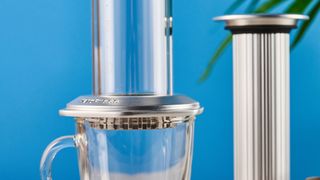
Kirsty Pavely, Marketing Controller at Ueshima Coffee Company, says, "The AeroPress is fast becoming one of the most popular ways to brew coffee and it is ideal for single brews specifically, thanks to the simplicity of the design and its ability to deliver consistently high-quality coffee in every cup."
The AeroPress works similarly to the French Press in that it uses a plunger to brew the coffee, but it’s a lot smaller making it incredibly portable and inexpensive. It brews a single serving of coffee through a thin paper filter directly into your cup. It can be a little messy to use, but once you get the technique down, it’s perfect for providing coffee on-the-go. As such, it makes the perfect last-minute coffee gift.
For this method, Healy says, "Aeropress is a really sturdy plastic plunger which is good for traveling with. It’s best for making a tasty filter style coffee rather than an 'espresso' style coffee. Place a circle filter in the top cap and rinse under hot water. Screw the cap onto the chamber. Pour in 12-16g of medium ground coffee. Place this chamber on your cup and fill it up with just off boiling water (it can do up to 240ml) stir the coffee with the paddle provided. Place on the top chamber quickly, this creates a vacuum so the coffee can brew. After 2 mins, slowly plunge. It is firm to do, so be on a steady surface."
Evan Dohrmann, Executive Vice President of Sales at Steeped Coffee adds to the flavor profile by saying, “This method can extract a variety of flavors from the coffee beans, ranging from bright and fruity to rich and chocolatey tones.”
3. Chemex
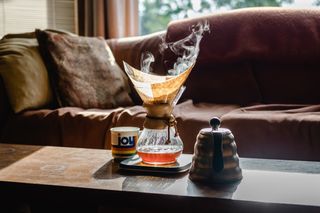
Finally, a Chemex is a manual, pour-over coffee maker that uses a glass flask and filter to manually create your coffee. When it comes to the flavor, Dohrmann says, “The Chemex brewing method involves pouring hot water over coffee grounds in a special glass vessel, allowing the coffee to drip through a paper filter. This process results in a clean and crisp coffee with pronounced aromas and distinct flavors. The Chemex is known for highlighting the subtle nuances of different coffee beans, offering a refined and balanced coffee experience.”
For this method, Healy explains, "My standard recipe is 6g per 100ml, so 15g of medium ground coffee will make 250ml coffee (a good size mug!) spoon the coffee into the center of the filter. Pour boiling water (or just off boiling) onto the coffee until the grounds are covered. Let this sit for 30 seconds to a minute. This is called a bloom and releases unwanted CO2 from the coffee. Then slowly pour water 100ml at a time until at your desired weight. Take your time pouring, you want the brew time to be around 3 mins for a 1 cup and 4 mins for a 2 cup. If you feel fancy, give the slurry a swirl on the final pour, this will ensure even extraction and a tastier coffee."
Pavely recommends, "For two coffees, you’ll need 30g but if you prefer your coffee to be strong, increase the serving to 17g per person."
What if I can't get hot water?
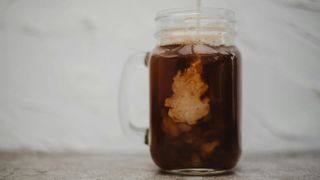
Having no access to hot water doesn't mean your coffee drinking dreams are over. The simple answer to this is cold brew. Creating a cold brew is essentially steeping ground coffee in cold water over a number of hours. The beauty of it - you can make it without any fancy equipment and, even more importantly, without hot water.
To create a cold brew, follow these steps:
- Measure out ground coffee and cold water at a 1:4 ratio, e.g. 8oz coffee to 36oz water
- Add both to a large jug or container, gently stir, and cover
- Leave the mixture to steep at room temperature for 12-24 hours
- Strain the mixture through a fine-mesh strainer or coffee filter paper
- Fill a glass with ice
- Pour on your coffee mixture
- Dilute with water or milk to taste
For more details on the process, check out our guide on how to make cold brew coffee.
What's the cheapest option for coffee without electricity?
The simplest and cheapest way to make coffee is by using instant coffee grounds. Unfortunately, you won't get the best tasting brew, but if you don't have access to electricity or even hot water, then it's the best way to get coffee fast.
It's typically cheaper due to the type of bean, the way it's made, and the cheaper packaging. And, it's easy, because it only requires you to add one or two teaspoons to a mug with hot water, or even cold, to make.
Want better coffee at home? Then, you'll want to use fresh coffee grounds in the French press, as our experts discussed above. It's portable, lightweight, fairly cost-effective, and it's almost impossible to get it wrong.
More from Tom's Guide
- 7 ways to create a barista-style coffee bar in your kitchen
- 5 ways to froth milk without a milk frother
- Best coffee grinder — all the top options compared
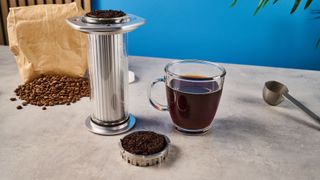
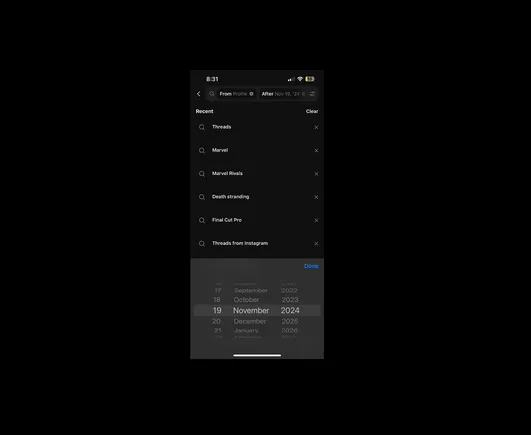
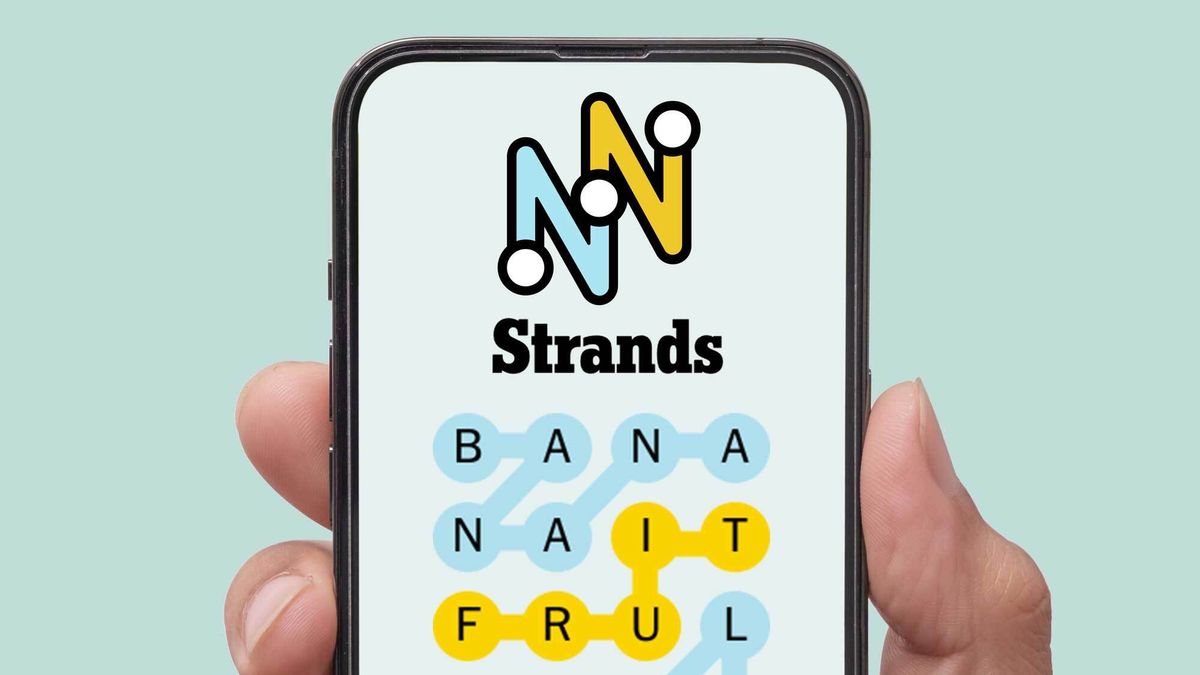


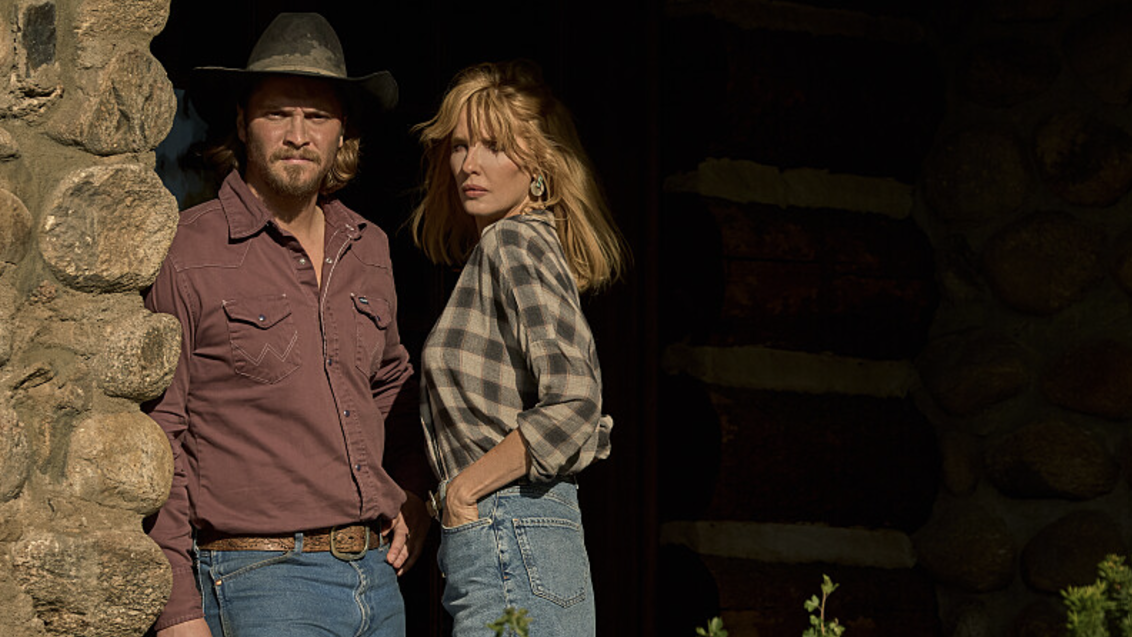



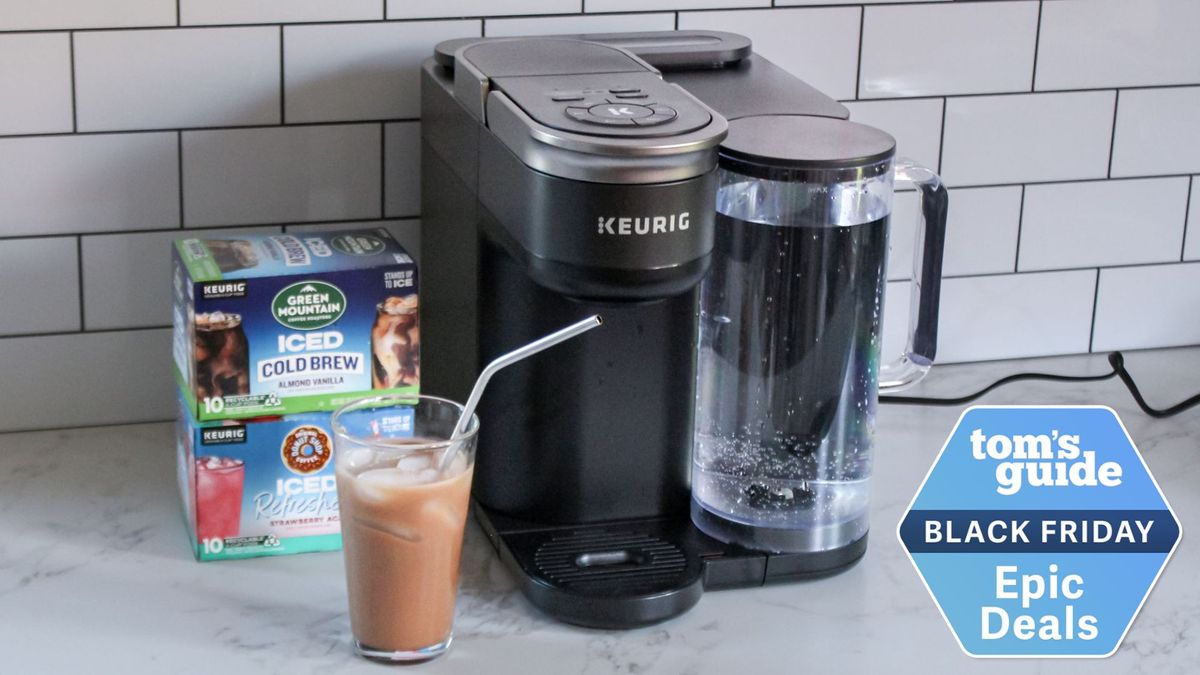
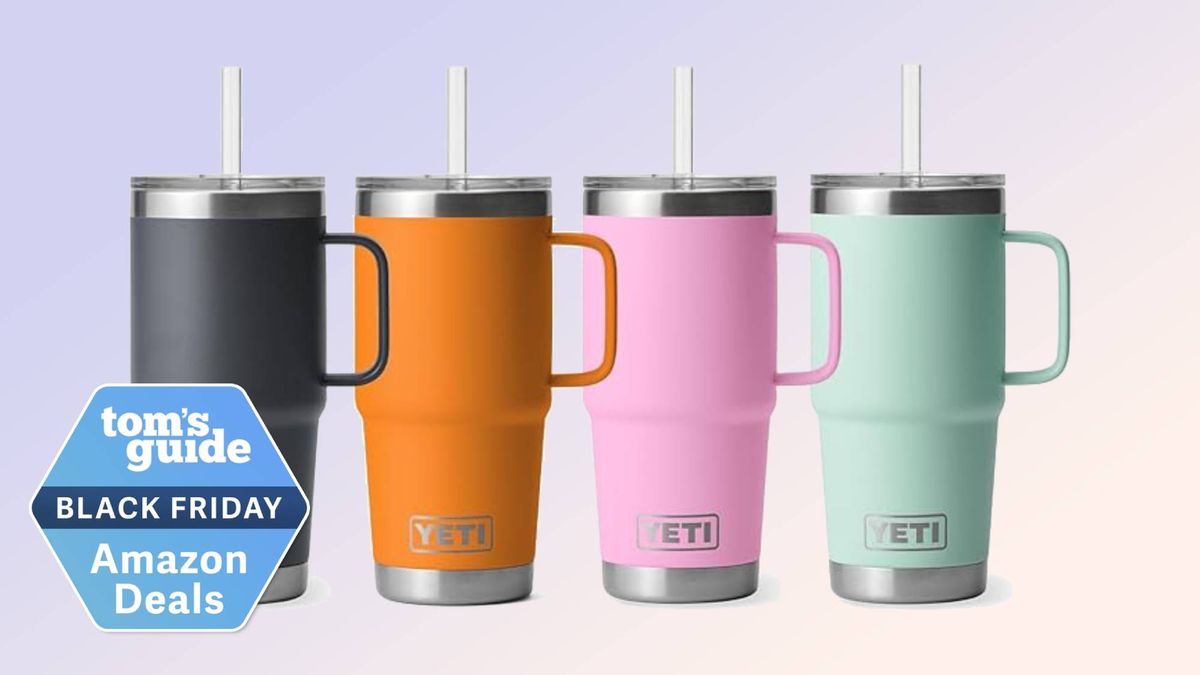
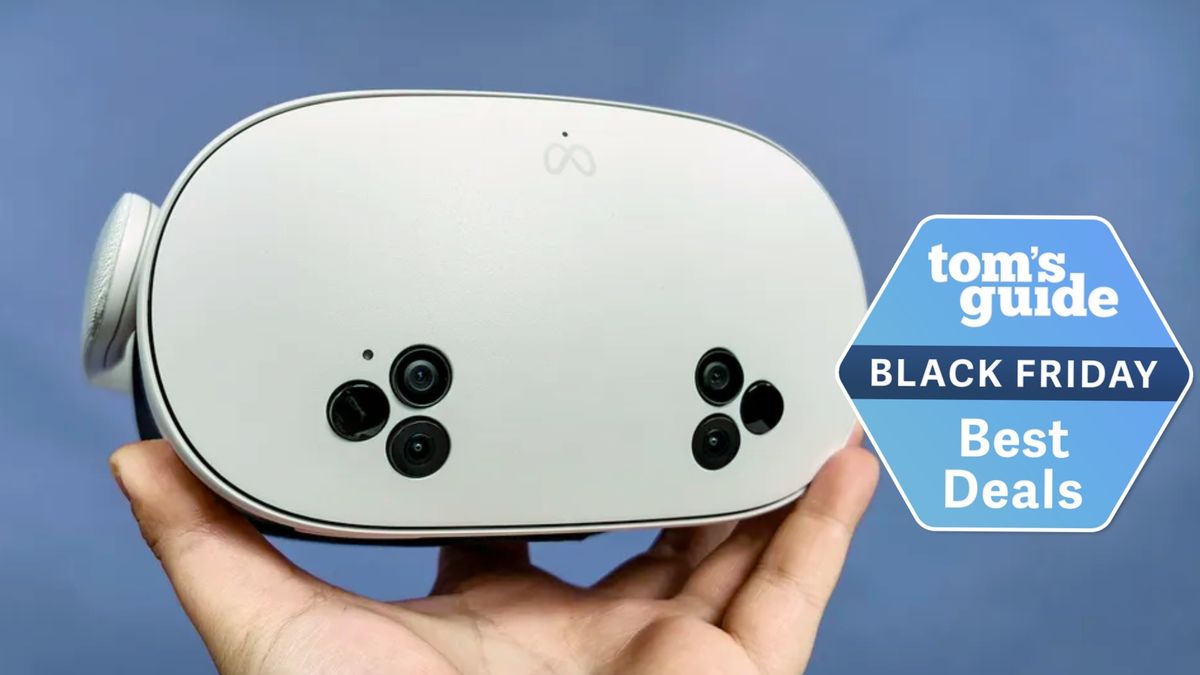
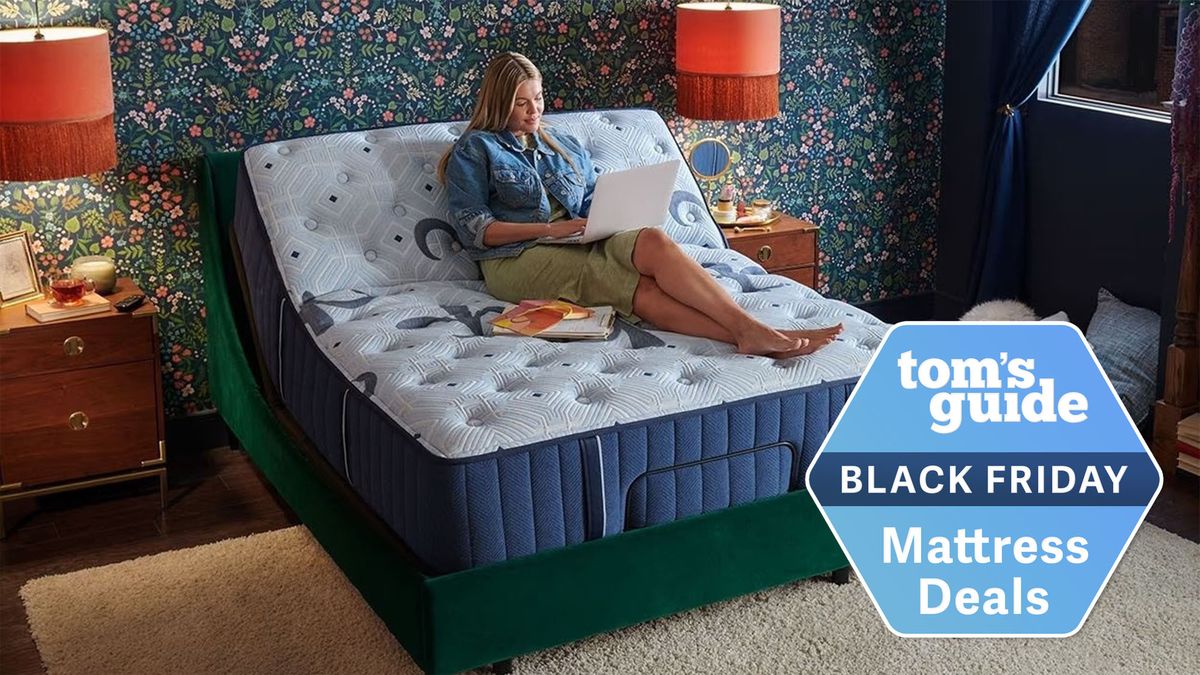








 English (US) ·
English (US) ·